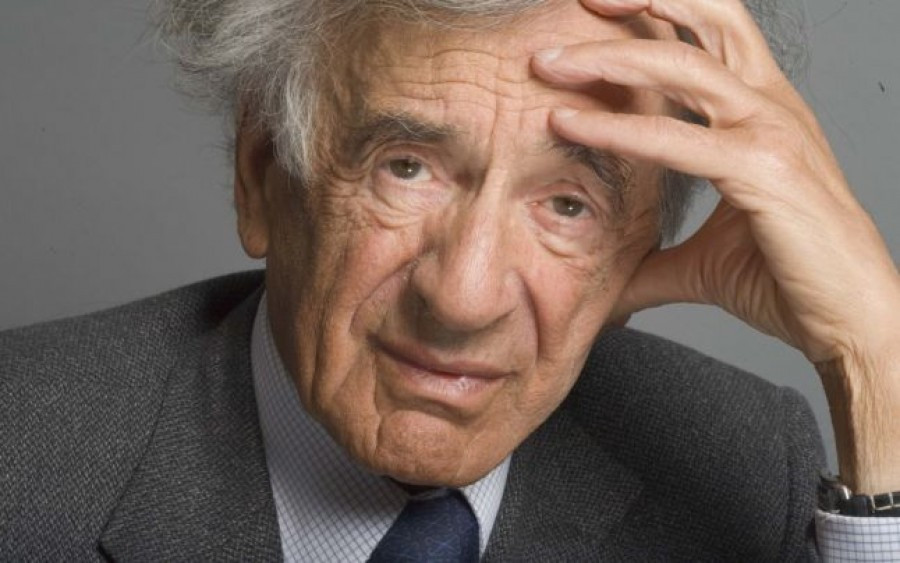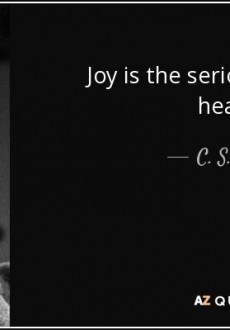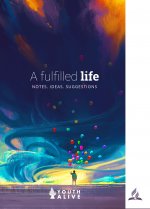By no means can it be said that this short volume of memoirs is easy-to-read or a book you wish to remember long after you finish it. However, it’s impossible for these faces, names, different scenes not to deeply imprint in your mind, only to resurface in your memory when you least expect them.
“Night”, written by Elie Wiesel, is all the more tragic, for two reason. Firstly – it’s an autobiography. Sometimes, the descriptions seem so surrealistic that you wish you were actually reading a horror novel, instead of an account of real events that happened less than seventy years ago. Secondly, everything in this book is written through the perspective of a teenager. Wiesel was fifteen when he began his journey through the heart of death of the Nazi Empire.
The narrative begins prophetically with two visions of the terrible days to come. Moses Paraclise, a mentor character, overlooked by the other inhabitants of the town and keeper of the old Jewish traditions, speaks to young Wiesel and introduces him to this ancient knowledge of God. However, one day he’s expelled from the city, with all the other foreigners, by the fascist Hungarian authorities in power. When he returns, he tries to warn everyone about the concentration camps, extermination and death. But no one listens. Just like Cassandra who foretold the fall of Troy, he was ignored by those who took comfort in the false illusion of a frontline that was still too far away.
The second moment of premonition happens on the train to the camp. Crowded in wagons like cattle, bereft of hope, they’re all resigned. Everyone, except a lady who seems to have a vision of an end. Her cries about a burning fire are only interrupted by the others’ insistence not to think about the truth before their eyes.
Throughout the time spent in the concentration camp, the conditions are getting harsher. We begin to understand the title of this book very well. The night has fallen long ago over the souls of those who are now indifferent torturers, soldiers in a genocide. Now is also the time when night falls over those who still saw a light at the end of the tunnel. This word is repeated throughout the volume, to describe how time is slipping towards a sorrowful ending. Nothing good comes of it, only evil.
One of the most shocking images is at Auschwitz, and it’s a detail noted by the author. In the middle of the gate to that man-made hell, where the shadow of the furnace flutters on the ground, it would seem that even nature would be lamenting the tragic situation of the prisoners. But it was not. At the beginning of the days he spent there, young Wiesel notices the clear sky and white clouds, a totally inappropriate picture of the drama below.
Night, however, is felt deepest in the soul of the young prisoner. By the end of the book, he becomes an orphan. Looking around him, witnessing such atrocities, he cannot help but accuse and demand answers from his heavenly Father, whom he feels is no longer capable of a just judgment. At the same time, he is witnessing the physical and mental collapse of his human father. Separated from his mother and younger sister, whom he later discovers to have died in Hitler's furnaces, Shlomo Wiesel remains the only reason that motivates him to go further during all these terrible years. As time goes on, he struggles with himself and with his self-preservation instincts. These whisper to him that he’s in a concentration camp where there are no parents, brothers or acquaintances, but only one who must survive.
Why should you read this book? To remember. That's why Elie Wiesel chose to write down these tragic memories. Survivors have the moral duty to talk about the hell they have gone through. One of the slogans of those who struggle to maintain Holocaust memory alive is “Never again”. If we forget, we can end up in the same situation of discriminating against and killing those who are different, just because someone orders us to. But if we remember where we come from and if we feel the pain of those who have lost something in such a fire of civilization, there is still hope. Hope that the night will not return upon mankind.













